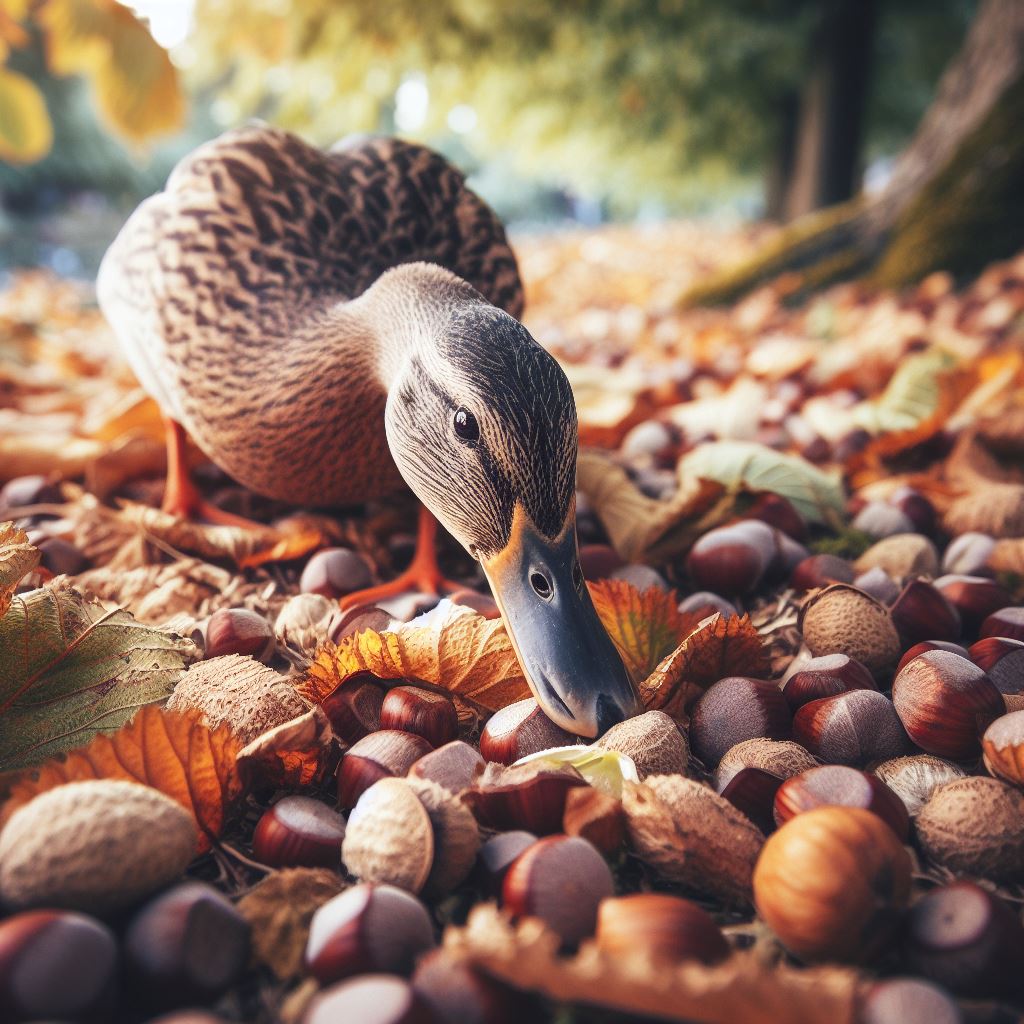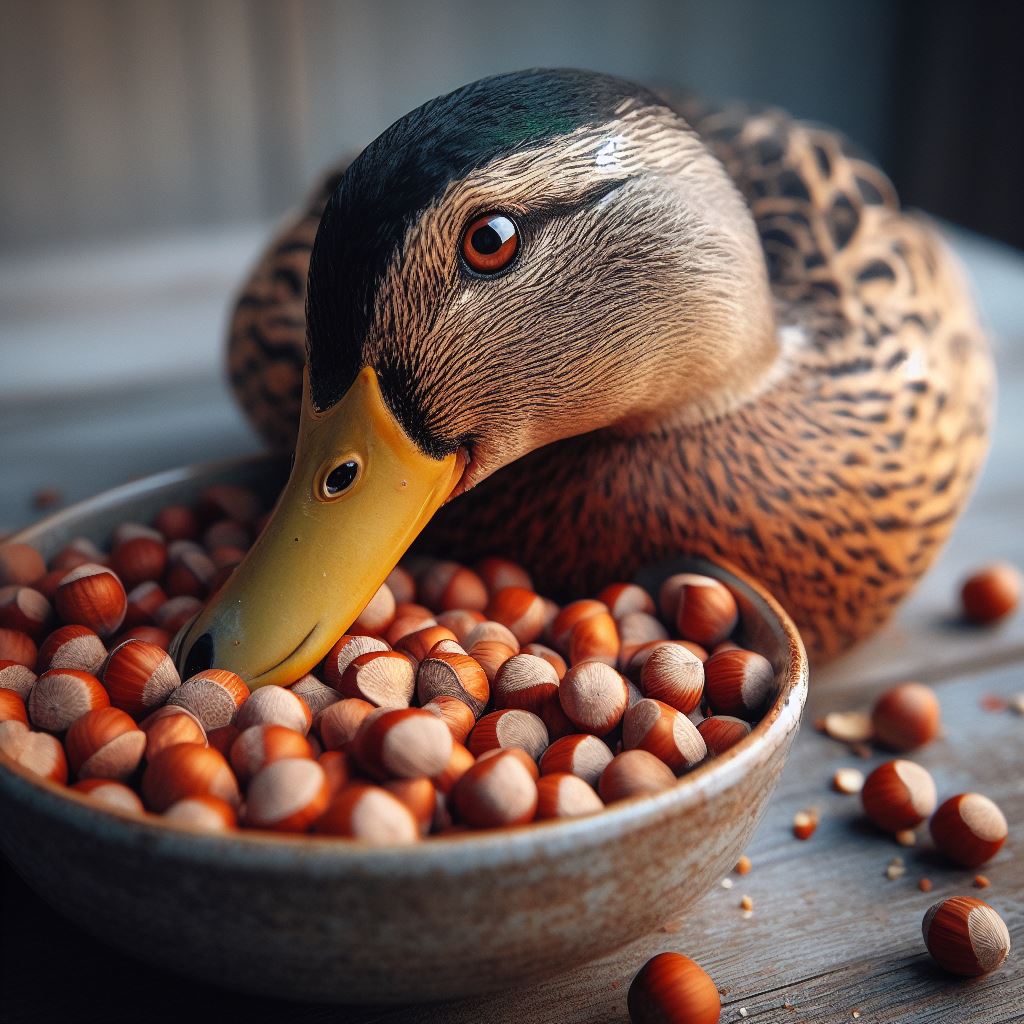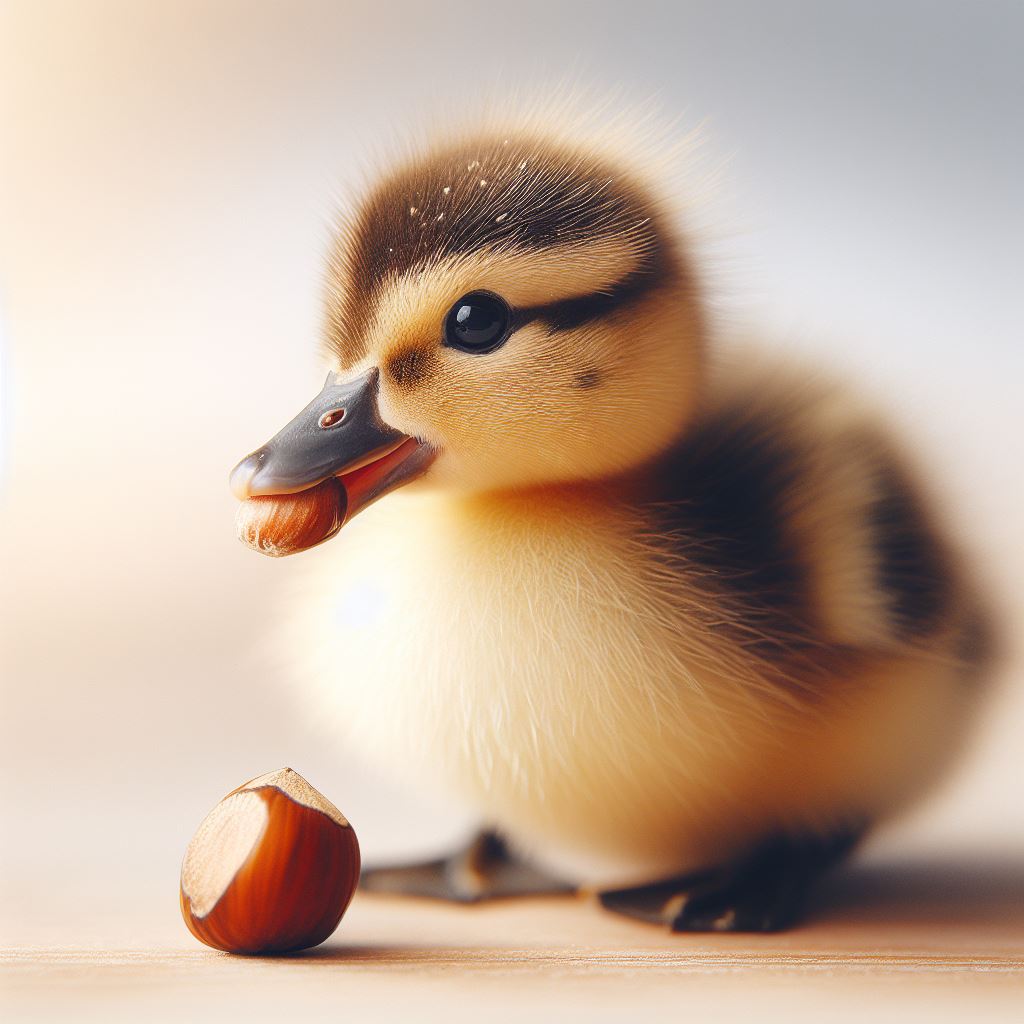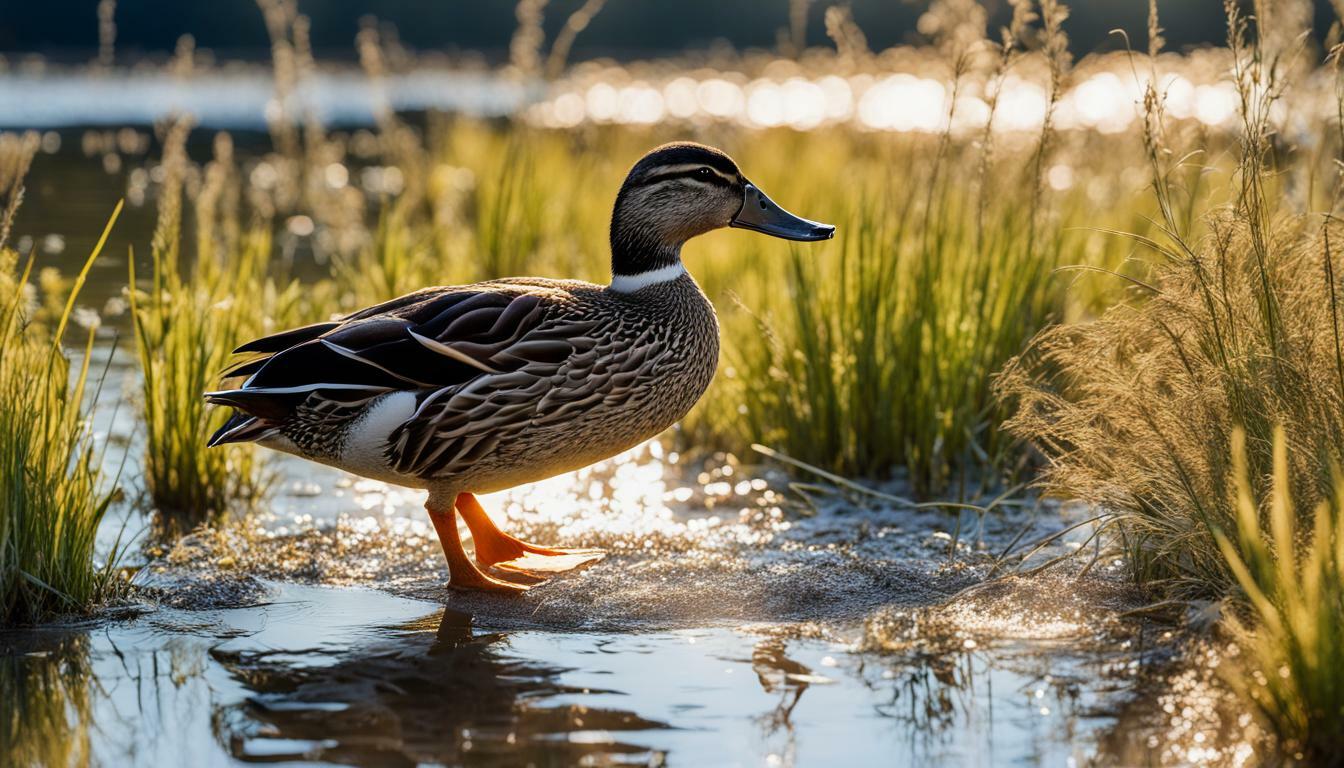Can Ducks Eat Hazelnuts? Nutrition Info and Feeding Guide

Table of content:
- Benefits of Hazelnuts for Ducks
- Can Ducks Eat Hazelnuts Safely?
- How Often Can Ducks Eat Hazelnuts?
- How to Prepare Hazelnuts for Ducks
- Healthy Foods to Feed Ducks Alongside Hazelnuts
- Hazelnut Allergies in Ducks
- Signs Your Duck Has Eaten Too Many Hazelnuts
- Frequently Asked Questions Feeding Hazelnuts to Ducks
- Conclusion
Yes, ducks can eat hazelnuts in moderation as an occasional treat. Hazelnuts provide healthy fats, protein, and nutrients. But limit intake due to high fat content. Chop hazelnuts to prevent choking.
Ducks can safely eat hazelnuts, but there are some important factors to consider before offering them.
Hazelnuts are the fruit of the hazel tree and are a rich source of nutrients like:
- Protein
- Healthy fats
- Vitamin E
- Manganese
- Copper
They have a sweet, nutty flavor that makes them a tasty snack for humans and animals alike.
 Benefits of Hazelnuts for Ducks
Benefits of Hazelnuts for Ducks
Here are some of the benefits hazelnuts can provide for ducks:
- Protein – Ducks require protein in their diet for muscle development, egg production, and overall health. The protein in hazelnuts can help meet this need.
- Healthy Fats – The monounsaturated fats in hazelnuts are a healthy dietary fat for ducks. Fats provide concentrated energy.
- Vitamin E – This antioxidant vitamin supports a healthy immune system and helps prevent disease. Vitamin E is essential for ducks.
- Manganese and Copper – These minerals support bone development and a healthy metabolism.
So in moderation, hazelnuts can be a nutritious supplement to a balanced duck diet.
Can Ducks Eat Hazelnuts Safely?
Yes, ducks can safely consume hazelnuts. However, there are some important considerations:
Choking Hazard
Whole hazelnuts may present a choking risk for ducks because of their size and shape. To prevent this:
- Chop hazelnuts into small pieces before feeding
- Avoid feeding whole hazelnuts to young ducklings
High Fat Content
While healthy fats are important in a duck’s diet, hazelnuts are very high in fat. Too many could lead to obesity and other health issues.
Allergies
Some ducks may have allergies or sensitivities to nuts. Monitor your duck’s reaction when first introducing hazelnuts.
Mold Risk
Wet hazelnuts are prone to mold growth. Always inspect hazelnuts before feeding and discard any with signs of mold or spoilage.
So as long as you control portion sizes, chop hazelnuts to prevent choking, and monitor your duck’s reaction, hazelnuts can be a healthy, nutritious treat.
 How Often Can Ducks Eat Hazelnuts?
How Often Can Ducks Eat Hazelnuts?
Hazelnuts should only be fed to ducks in moderation as an occasional treat.
Here are some feeding frequency guidelines:
- Adult ducks – Up to 2-3 hazelnuts, 2-3 times per week
- Ducklings – Up to 1 chopped hazelnut, 2-3 times per week
Feed hazelnuts as no more than 10% of the total diet. They are high in fat, so frequent overfeeding could lead to weight gain or other issues.
Always provide plenty of fresh water when feeding treats like hazelnuts to help digestion and prevent choking.
 How to Prepare Hazelnuts for Ducks
How to Prepare Hazelnuts for Ducks
To safely feed hazelnuts to ducks:
- Carefully inspect hazelnuts and discard any with signs of mold, damage, or spoilage
- Chop or break hazelnuts into small pieces for ducklings or mini duckbreeds
- Chop, slice, sliver, or mince hazelnuts for adult ducks
- Avoid feeding whole hazelnuts which could pose a choking risk
- Hazelnuts can be fed raw, roasted, or slivered
Chopped hazelnuts can be hand fed for bonding or scattered in pans, bowls, or directly on the ground for foraging enrichment.
Healthy Foods to Feed Ducks Alongside Hazelnuts
To balance out the high fat content of hazelnuts, provide a variety of other healthy foods:
- Poultry feed or crumbles
- Greens like kale, spinach, swiss chard
- Chopped fruits and vegetables
- Sprouted seeds or legumes
- Mealworms, crickets or other insects
- Chopped hard boiled eggs
- Oats, rice, barley or other whole grains
- Chopped leafy herbs
A diverse diet will provide balanced nutrition and variety.
Hazelnut Allergies in Ducks
Though rare, some ducks may have an allergy or sensitivity to hazelnuts. Signs of an allergy include:
- Rash or swellings around the face and neck
- Itchy skin or feathers
- Digestive issues like vomiting or diarrhea
- Difficulty breathing
If you observe any concerning reactions after feeding hazelnuts, discontinue use and consult a veterinarian.
Signs Your Duck Has Eaten Too Many Hazelnuts
Moderation is key when feeding high fat treats. Signs your duck may have overindulged on hazelnuts include:
- Loose stool or diarrhea
- Lethargy or lack of energy
- Weight gain, especially abdominal fat
- Difficulty swimming or moving
- Lack of appetite for other foods
Reduce hazelnut portion sizes and frequency if you notice these issues.
Hazelnuts can provide beneficial protein, healthy fats, and nutrients for ducks when fed properly.
Chop hazelnuts to prevent choking and limit portion sizes to no more than 10% of the total diet 2-3 times per week.
Pair with nutritious greens, vegetables, and proteins.
Discontinue use if any signs of allergic reaction occur. Fed responsibly, hazelnuts make a tasty, nutritious supplementary treat that ducks will enjoy.
Frequently Asked Questions Feeding Hazelnuts to Ducks
Can ducklings eat hazelnuts?
Yes, ducklings can eat small portions of chopped hazelnuts in moderation. Avoid feeding whole hazelnuts to young ducks. Chop hazelnuts into tiny pieces and limit intake to prevent choking. Offer just 1-2 small hazelnut pieces 2-3 times weekly.
Do ducks like hazelnuts?
Most ducks enjoy hazelnuts and will eat them readily when offered as a treat. Ducks have a natural foraging instinct and like exploring new foods. The sweet nutty flavor of hazelnuts appeals to their preferences. Just don’t overdo it, as ducks will eat hazelnuts to excess if given the chance.
Are hazelnuts good for duck eggs?
The nutrients in hazelnuts like vitamin E, selenium, and omega-3s can contribute to better egg quality. But moderation is key, as too much fat could negatively impact laying. A few hazelnuts a week may provide benefits, but too many could inhibit egg production.
Can I feed my duck’s hazelnut butter?
You can occasionally offer small amounts of hazelnut butter. Choose an all-natural nut butter with no sugar or additives. Hazelnut butter is creamy and spreadable, reducing the choking risk. But limit intake, as the concentrated fat content can quickly lead to weight gain.
Is it okay to feed ducks hazelnut spreads like Nutella?
Avoid sugary hazelnut chocolate spreads like Nutella. The sugar content is far too high for ducks and may cause digestive upset or obesity. Even in small doses, the added sugars provide empty calories lacking nutritional value for ducks.
What about hazelnut milk?
Plain, unsweetened hazelnut milk is safer for ducks than chocolate nut spreads. But it’s still high in fat. Offer only as an occasional treat in a small saucer, no more than 1-2 times weekly. The milk may also spoil quickly in warm temperatures.
Can I compost my leftover hazelnuts for the ducks?
You can add hazelnut shells to your compost pile. But discard any uneaten hazelnut pieces, as decomposing nuts may grow mold that could make ducks sick. Compost any partially eaten hazelnuts, greens, or other foods separately from your duck pen area.
Are the skins of hazelnuts okay for ducks?
Yes, the fibrous skins and shells of hazelnuts provide beneficial fiber and enrichment. Just be sure to compost any uneaten remnants promptly to prevent issues with rot and mold. Chop the hazelnuts finely with skins on for easiest consumption.
Conclusion
Hazelnuts can be a tasty, nutritious supplementary food for ducks when fed in moderation.
Their high protein, healthy fats, vitamin E, and mineral content provide benefits.
But hazelnuts should only comprise a small part of a balanced diet.
By controlling portions, chopping hazelnuts to prevent choking, and pairing them with nutritious greens, fruits, and proteins, duck owners can safely provide this food as an occasional treat.
Be mindful of signs of overindulgence, allergies, or spoilage, and adjust intake accordingly for the health and wellbeing of your ducks.
Welcome. I’m Adreena Shanum, the proud owner of this website, and I am incredibly passionate about animals, especially poultry. I founded adreenapets.com as a labor of love, stemming from my desire to share my knowledge and experiences with poultry enthusiasts worldwide.




